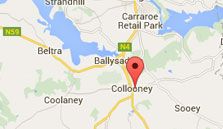Who Should Attend?
Those who drive in-company vehicles or their own vehicles during the course of their work.
They will receive specialist training and guidance in order to improve their driving competency, further reduce the risk of road traffic accidents and comply with current safety, health and welfare legislation.
Theory (4 hours, Maximum 20 Drivers)
Practical (1.5 – 2 hours, Own Vehicle)
Driver Resources
Each driver will receive a specially designed workbook that will help them apply their learning’s from the course to road. This workbook will also provide with them the opportunity for reflection on their roles. In addition, each driver will receive a complimentary copy of the Institute of Advanced Motorists (IAM) Advanced Driving The Essential Guide
Assessments
Driver Metrics – this is an online driver behavioural assessment that takes about 30 minutes to complete. All feedback is then compiled along with assessment results and presented to the client.
Instructional methods
Coaching style using Honey and Mumford learning cycle supported by practical examples, group discussion and case studies.
 Download the Decision Driver Training Programme 2012 course PDF
Download the Decision Driver Training Programme 2012 course PDF
Overview
This one day funeral industry specific Manual Handling Training Course will equip the learner with the knowledge, skills and competences to apply correct manual handling techniques in their workplace.
The training is for persons to whom the following definition applies “Manual handling of loads means any transporting or supporting of a load by one or more employees and includes lifting, putting down, pushing, pulling, carrying or moving a load, which, by reason of its characteristics or of unfavourable ergonomic conditions, involves risk, particularly of back injury, to employees”. (Safety, Health and Welfare at Work (General Applications) Regulations 2007, Regulation 68).
In addition the course will provide a structured development experience combining theoretical knowledge with practical application.
Course Entry Requirements
No formal educational requirements, however, those who have been advised by a doctor or suffer from back pain should advise the DCA prior to attendance. In addition, where possible clothing should reflect the participants work, provided it is loose fitting.
Learner Resources etc
Each delegate will receive a specially designed workbook that will help them apply their learning’s from the course to the job. This workbook will also provide with them the opportunity for reflection on their roles.
Certification
A Manual Handling’ Certificate and/or a Wallet Card will be awarded to all those who attend the course and successfully complete the assessments.
 Download the Certificate in Manual Handling 2012 course PDF
Download the Certificate in Manual Handling 2012 course PDF
The Irish College of Funeral Directing and Embalming (ICFDE) is a private knowledge and skills provider. The school is dedicated to providing skills and knowledge in the fields of embalming and funeral directing. The course is designed to equip the learners with the core knowledge and practical skills essential to the practice of Modern Embalming or Hygienic Treatment.
The school has been offering training in Modern Embalming/Hygienic Treatment since 1995. David McGowan, ICFDE Founder and Tutor had been teaching practicing embalmers and new students from all over Ireland. Many embalmers from other parts of Europe have also come to him for training. David had also taught doctors in Lithuania the modern and scientific way of embalming. This was the start of education in modern embalming in Lithuania. The Professional Embalmers’ Association of Ireland (PEAI) recognizes the course delivered by the ICFDE. The final theory and practical exams are set and corrected by an external examinations board- Deathcare Academy Examinations Board of Mortuary Science (DCAEBMS).
Learning Outcomes
What is a Learning Outcome?
A learning outcome is a statement of what the learner is expected to know, understand or be able to do on successful completion of the programme.
Learning outcomes may be in form of knowledge, skills, attitudes and habits of mind that students take with them from a learning experience.
The students are provided with a set of learning outcomes to guide them through the entire learning process. These learning outcomes are direct and simple.
Modules
Module I – Introduction to Embalming
Module II – Anatomy and Physiology
Module III – Embalming Theory
Module IV – Embalming Practice
Methodology
We have been teaching students from a vast range of backgrounds. We have adopted a flexible and personal mode of delivery of the course that will accommodate anyone from any background. The total amount of time to complete the course may vary depending on the amount of time being put in by the student. Ideally, the theory part of the course can be completed in 12 months and another 6 months can be allocated towards the practical instructions.
Student-Centered Learning (Diagram)
Entry Requirements
In Ireland, embalming practice is NOT regulated, meaning you do not need to do any course in order to start working as an embalmer.
Ideally, the applicant should have completed the Leaving Certificate or an equivalent qualification. A background in Anatomy and Physiology would be an advantage. Previous experience working in a mortuary set-up is also an advantage but not required.
All interested students must sit in the Introductory Course (no fee) conducted during the Open Day and must see at least two (2) embalming procedures prior to registration to the course.
Assessment Procedure
The tutor provides continuous assessments of the students and provides feedback. It is usually done at every end of each module or every end of the units in the case of longer modules.
Final assessments are provided by external examiners – Deathcare Academy Examinations Board of Mortuary Science (DCAEBMS).
Final Theory Examination
Upon successful completion of all the Modules, the student will be put forward by the Course Provider to sit the Final Theory exam which is set and corrected by an approved examiner from the DCAEBMS.
Objective Structured Practical Examiantion (OSPE)
Upon successful completion of the Final Theory Exam and completion of the minimum case requirements set by the Exam Board, the student (with the approval of the Course Provider) may apply for the OSPE.
Qualification
The course is approved by the Deathcare Academy Examinations Board of Mortuary Science (DCEBMS) and the Professional Embalmers’ Association of Ireland (PEAI).
Upon successful completion of the Final Theory and OSPE set by the DCEBMS, students will be entitled to apply for Full Membership of the PEAI (www.professionalembalmers.ie).
Foley and McGowan Building, Unit 3, Union Road Business Park, Collooney, Co. Sligo, F91 AKW5
T: +353 (0)96 75290
F: +353 (0)96 70324
E: info@deathcareacademy.ie
![]() Download the Decision Driver Training Programme 2012 course PDF
Download the Decision Driver Training Programme 2012 course PDF

